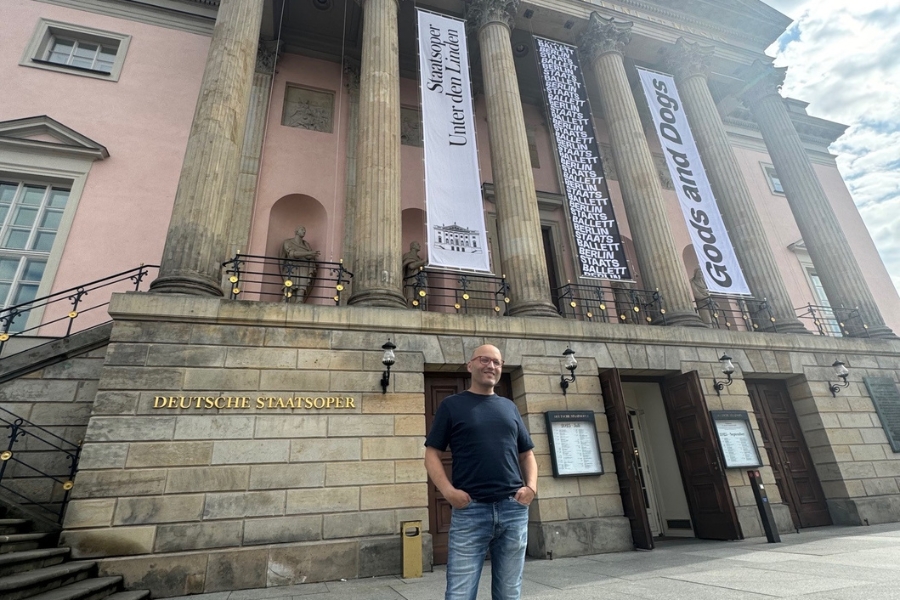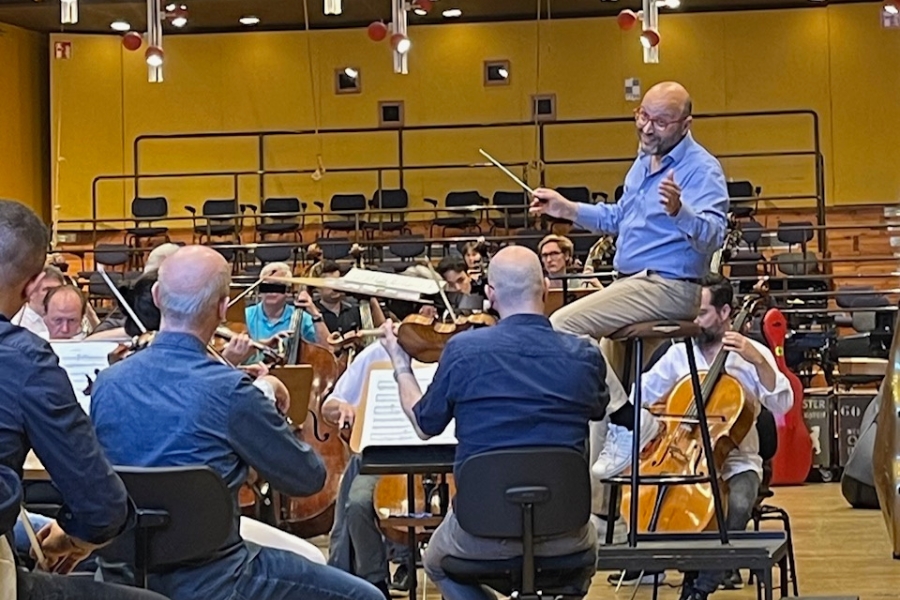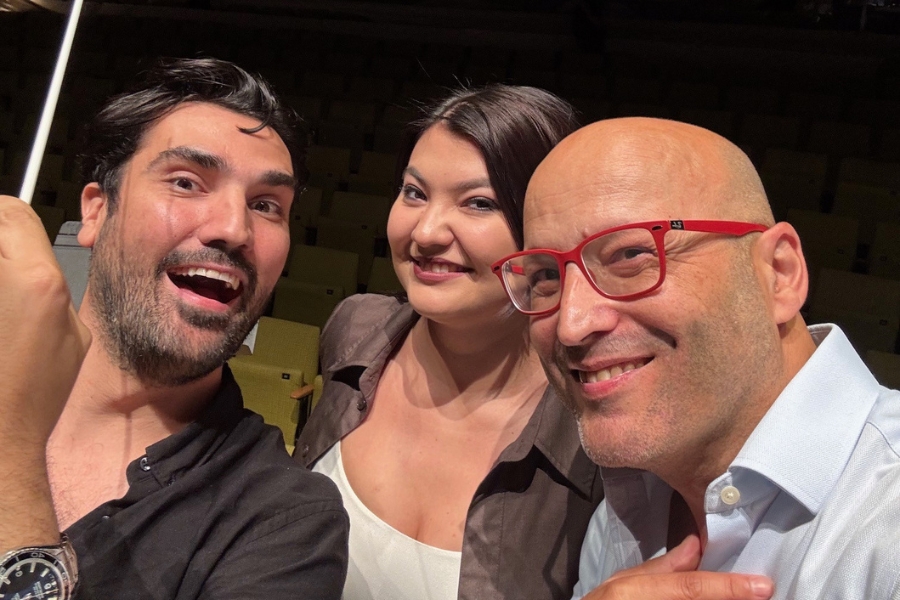July 29, 2025
Postcards from Enrique: Berlin
Music Director Enrique Mazzola’s whirlwind summer continues: Tokyo, Paris, Montepulciano, and now Berlin, for his final program as Principal Guest Conductor with Deutsche Oper Berlin.
Here's the third in our series of conversations with Maestro Mazzola, where he offers high praise for Massenet, Meyerbeer, and other old friends.

Next season, Maestro Mazzola will make his debut at the Staatsoper, Berlin's other great opera house.
Maestro, you are back on the podium in Berlin now — but did you enjoy some relaxation in Montepulciano?
It was a very nice time to reconnect with family and friends. And I visited a lot of wineries. But above all, it was beautiful to spend time in my fields. We are urban creatures, and our comfort is to sit in a good chair or to lay on the bed. But there is a specific pleasure in sitting on the ground and putting your hands in the soil.
That must be part of what keeps you coming back.
Montepulciano is a gateway for me to a more bucolic life. Maybe it’s just one week per year, but it reconnects me with the Earth. There’s the smell of olive wood in the air. Wildflowers, lavender, the cypress trees. We plug in our iPhones. For me, it’s a chance to plug into nature.
A far cry from Berlin.
It would be difficult to barbecue here.

In rehearsals with the Deutsche Oper Berlin Orchestra.
So you are at Deutsche Oper Berlin, finishing your contract as Principal Guest Conductor.
Yes, with a concert production of Massenet’s Werther. It doesn't mean that I won’t be here again. We’ve worked together for more than 15 years now. I remember a new production of Barber of Seville with director Katharina Thalbach, probably back in 2009. I have wonderful friendships here — strong bonds with the orchestra, with the director Christoph Seuferle, and with the Intendant, Dietmar Schwarz, the equivalent of our General Director. It has been a beautiful, long, artistic, and human adventure, full of new productions.
And one peak has to be your Meyerbeer opera cycle.
An incredible collaboration, starting in 2014. It was literally celebrated all over the world, because it was quite unique to have L'Africaine — the first version of that opera, which is called Vasco da Gama — and then Les Huguenots, and then Le Prophète, and then Dinorah. We made a wonderful CD of that one.
And you made a recording of Hérodiade by Massenet with Deutsche Oper as well.
Yes, released last year.
When you are in Berlin, do you conduct rehearsals in German?
For all the numbers and the small nuances — a little bit louder or softer, or a little bit slower, langsamer — yes, German. But if I have an elaborate concept to relate, I prefer to do it in English.
You have wide facility in languages.
I can easily live in France with my French. If I receive a letter from the bank, I understand it perfectly. Or — what is the most normal example? I can watch the TV news in French with absolutely no problem, like Italian or Spanish.

All smiles with Werther stars Jonathan Tetelman and Aigul Akhmetshina!
Speaking of French — who are the lead roles in your Werther?
There are really two stars. In the title role, the Werther is Jonathan Tetelman, a tenor having a huge career all over the world. He’s very friendly to work with. And the other star is Aigul Akhmetshina, a really fantastic mezzo-soprano. We did Maria Stuarda in Amsterdam together, so we know each other very well. It's beautiful, after a couple of years, to meet again for this project.
Where does Massenet reside in your pantheon?
It’s a little bit difficult to give a ranking to Massenet. He is unique in that you cannot say there is an early Massenet and a mature Massenet. He more or less wrote in the same style, applying it to epic situations as in Hérodiade, and in intimate moments as well. Extremely romantic, but not varied. I remember a long time ago some critic said ‘Once you have listened to Manon by Massenet, you have listened to all Massenet.’ But his repertoire is beautiful — rich and colored.
And how do you like working on Werther?
Werther is, if not the most beautiful, at least one of the most beautiful operas of Massenet — and probably of the entire French repertoire. My big question is why Werther is not really a repertoire opera like Rigoletto or Bohème. Of course, when I conduct operas like these, I have a thousand thoughts. And of this thousand, one of the first is: “We should bring Werther to Lyric.”
Those are very strong sentiments!
Because the music is so wonderful. Massenet’s only, let's say, mistake, is that he never really took steps to renew himself. Like Verdi did, like Puccini did, like Wagner did, like Meyerbeer did.
You’re only in Berlin for two weeks or so. Will you have time to enjoy the city’s museums?
I'm planning, yes, to visit the Neue Nationalgalerie. Berlin is a city of museums — and a city with three opera houses. But right now is really a time to prepare for the Grand Teton Music Festival and Aspen. Conductor life is beautiful because our engagements bring us all over the world. But very often our free time is not for having fun or visiting – it’s for spending time with scores.

